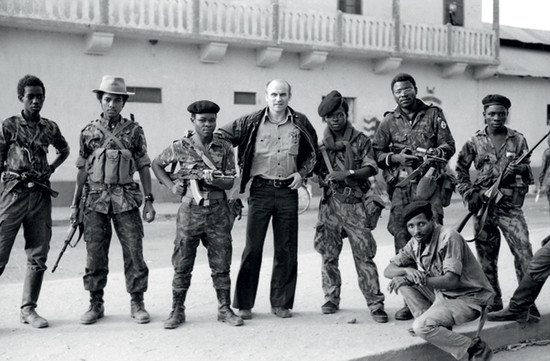
CAF have announced Togo will be disqualified if they do not materialize for the kick off of their fixture against Ghana tonight in Cabinda.
Rumours abound whether Botswana, The Republic of the Congo or Namibia will be invited to do a “Denmark”.
Cabinda’s separatist rebels, FLEC, have apologized for the attack, claiming it was a mistake to attack the Togolese, and have presented their condolences to the families of the deceased.
Pessimists supported by hustlers and vultures from the security and shock industry continue to make fear representations to the press about South Africa’s World Cup.
And it now seems Confusão has rubbed off on the Algerian defence, who are being torn to shreds by Malawi.
Arsène’s Respect for Africa
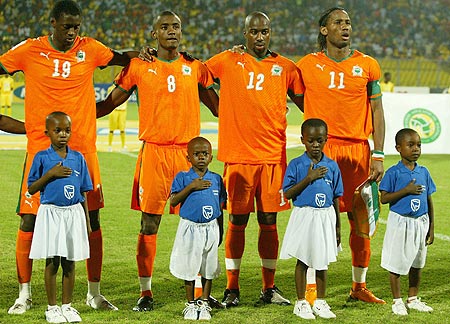
The response to the attack on the Togolese team from much of the rabble that constitutes the English Premier League was predictable. The emirs and oligarchs did not say much, leaving it to some of the old fashioned brass merchants to bellow about bringing their players “home”.
Arsène Wenger was not of the same mind.
When asked if he wanted to bring his players back to Britain (where let’s not forget Irish continuity forces still use the occasional bullet and bomb), Wenger was a beacon of sensibility and preferred to express his respect for Africa.
“We won’t be asking Fifa to release them, and I’ll be happy for Eboué to play in Cabinda on Monday,” said Wenger. “I believe it would be disrespectful to Africa and the Africa Nations Cup [to bring them home]. You can’t always encourage Africa to develop and if something happens say ‘come back to Europe’.”
Guns, Oil and Football
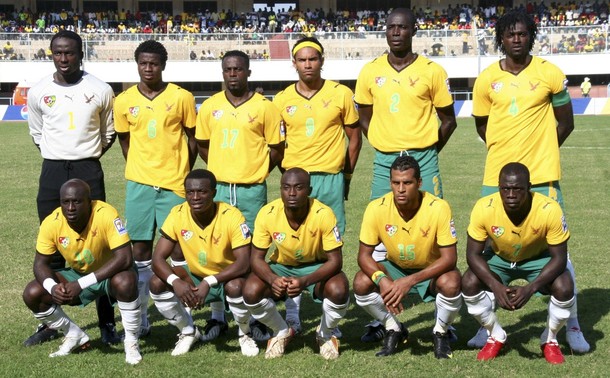
The intersection of oil and football has moved from a field in Fallujah to a Cabinda-Congo border crossing, where earlier today separatist rebels ambushed the Togolese team bus.
Terrified Togolese footballers told of how they dived to the deck of the bus as they were “machine-gunned like dogs”. The Angolan bus driver was killed and four others on the bus were wounded including the reserve goalkeeper, Kodjovi Obilale (pictured in the Togo team photo above), and young midfield prospect, Serge Gakpé.
Les Eperviers are in state of shock and soundings taken from the players suggest they are unlikely to fulfill their fixtures. Togo are scheduled to open their tournament against Ghana in Cabinda on Monday.
You can expect a flurry of charges of corruption and references to atrocities dating all the way back to Berlin conference of 1884 (which set the borders for present day Angola, a year after Portuguese occupation of Cabinda).
No doubt the oil emirs and oligarchs who control the heights of English football will feel empowered to pipe up and demand the Africans return their human “property”. I fear there are probably no players of the calibre of Obdulia Varela around to respond. I wonder what the great Uruguayan captain would make of being told to return to the ranch to drive a Range Rover around the Stamford Bridge Ice Rink for the viewers at home? It will be interesting to see how Michael Essien and Didier Drogba respond tomorrow to the prospect of playing their 1st round fixtures in the Angolan enclave that is home to between 60% to 70% of Angola’s oil.
Adidas Puma Wars Slip into South Africa
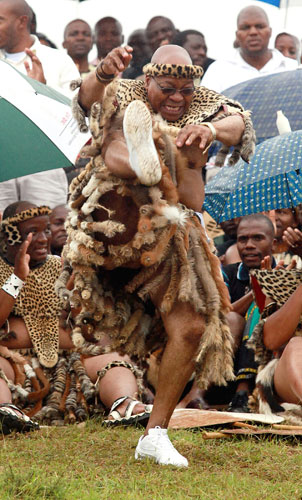
The Adidas Puma war slipped into South Africa early in the new year. Skirmishes were expected, though few would have predicted a Zulu Puma alliance. Here’s South African President Jacob Zuma showing he can kick it during his New Year wedding ceremony in the village of Nklandla. His Excellency’s hamstring came through a late fitness test, though his overall match fitness has never been in doubt.
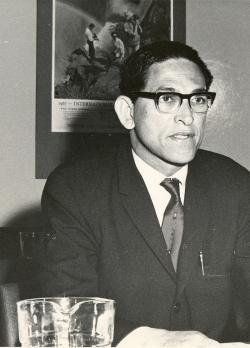
It is with immense sadness that we mourn the passing of Dennis Brutus, African activist and award-winning poet. The South African sport boycott owed much to his fierce commitment and relentless organizing, from his founding of the Coordinating Committee for International Recognition in Sport (1955) to the South African Sports Association (1958) and its successor, the South African Nonracial Olympic Committee. Dennis connected sport with the quest for human rights in powerful and probably unprecedented ways. Thanks largely to SANROC and its international allies, racist South Africa was expelled from the Olympics and world football. These global indictments of apartheid were huge and often undervalued milestones in the struggle against apartheid. Rest in peace Dennis. Hamba kahle.
Read Patrick Bond’s obituary here.
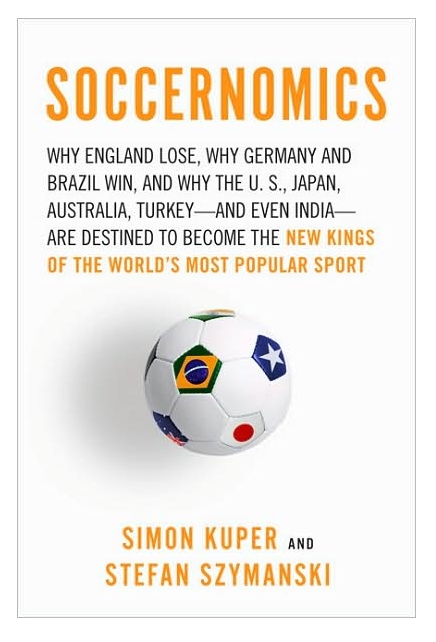 Stefan Szymanski, Director of the MBA program at Cass Business School in London and co-author of the new book Soccernomics, said on SAfm that the 2010 World Cup may turn out to be a ‘shocking waste of South Africa’s resources’ and not the economic ‘bonanza that government and Fifa would have us believe’. According to Szymanski, the only benefit that SA will reap from the tournament is a ‘feel-good factor’.
Stefan Szymanski, Director of the MBA program at Cass Business School in London and co-author of the new book Soccernomics, said on SAfm that the 2010 World Cup may turn out to be a ‘shocking waste of South Africa’s resources’ and not the economic ‘bonanza that government and Fifa would have us believe’. According to Szymanski, the only benefit that SA will reap from the tournament is a ‘feel-good factor’.
Read the full story here.
South African Sport, Hollywood-style
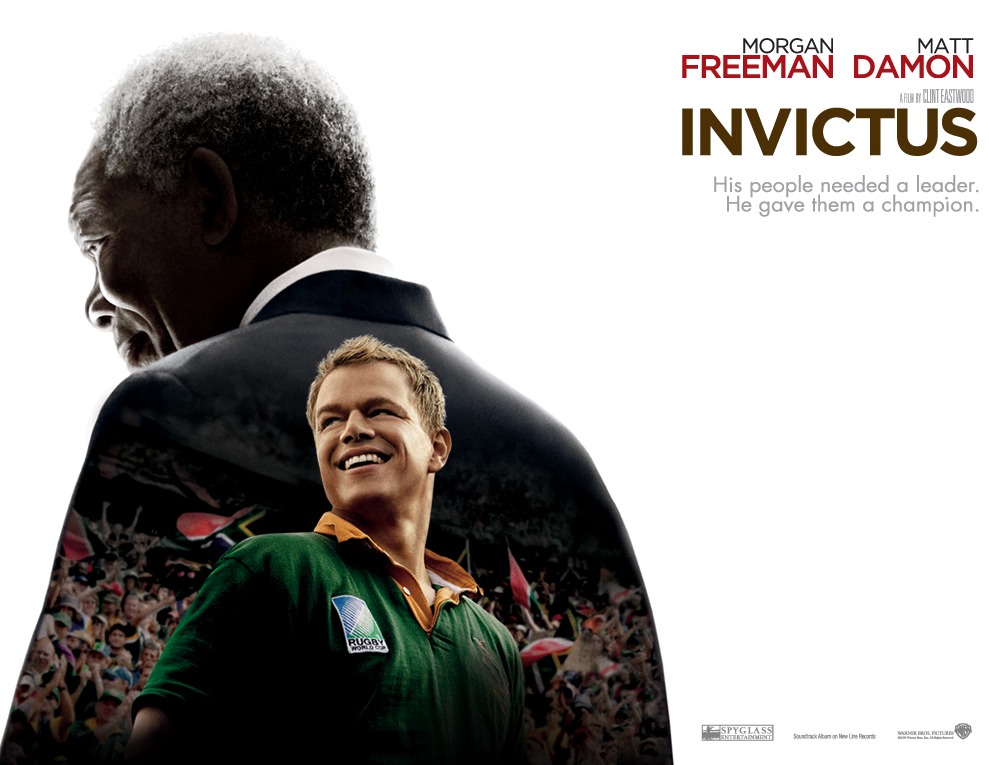
I just watched Clint Eastwood’s new film on South Africa’s victory in the 1995 rugby World Cup, one year after the country’s first democratic elections. Invictus (the title comes from an inspirational Victorian poem) stars Matt Damon as François Pienaar, captain of the Springboks, and Morgan Freeman as Nelson Mandela. Based on John Carlin’s book Playing the Enemy, it’s pretty good for a sports movie, a genre not usually associated with great cinematography.
The basics: thanks to Mandela’s stewardship, an all-white team (with one exception) goes from representing a sport synonymous with white supremacy to embodying the seemingly boundless potential of the postapartheid “rainbow nation.” There are some good moments. Like the team’s surprise visit to Robben Island prison, where the apartheid regime imprisoned Mandela and many other black activists during the country’s struggle for freedom. Props to Damon’s rugby moves, which are almost as good as his Afrikaans-inflected English, and to Freeman for closely matching Madiba’s physical movements and cadence. I enjoyed some of the sporting action as well, particularly the camera shots from inside the scrums.
Regrettably, sentimentality and cheesy music weaken the film. The lack of historical context and the refusal to develop any of the film’s characters (except Madiba) are also striking. We never get to know where the players come from, what their lives are like, and what happens to them after The Game. Same goes for the black and white bodyguards — a constituency usually at center stage only in movies such as In The Line of Fire and its ilk. While the final scenes project the fiction that 1995 transformed rugby from a white-dominated sport to a fully integrated one, the truth is much less uplifting. But then again, this is Hollywood history.